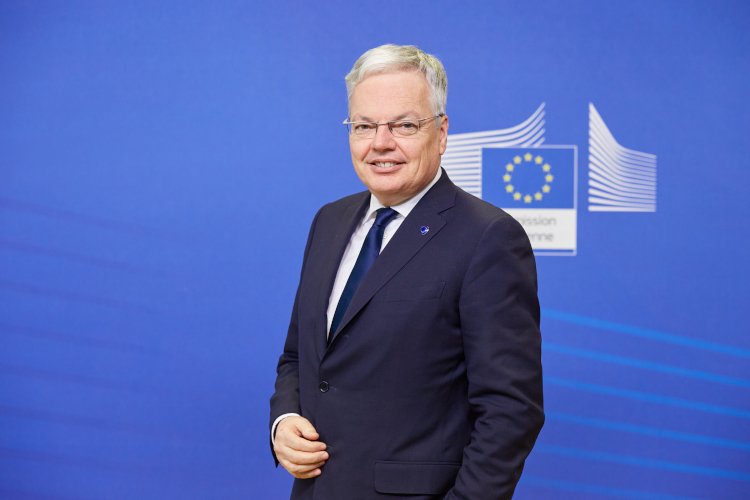Didier Reynders, European Commissioner for Justice

This year Eurojust continued its upwards trajectory to support the highest number of cases ever. Despite the continued restrictions of the pandemic throughout 2021, practitioners across the European Union were still able to rely on Eurojust continuously. I want to thank Eurojust’s dedicated staff, including the National Members, their deputies and assistants, as well as President Ladislav Hamran and Vice-Presidents Klaus Meyer-Cabri and Boštjan Škrlec.
Eurojust’s figures speak for themselves. In addition to supporting over 10 000 cases, Eurojust sent nearly 2 000 rapid responses to judicial cooperation requests and participated in over 1 400 large-scale operations. As a result, 2.8 billion euros of criminal assets were frozen, 7 billion euros of drugs were seized, and 3 329 suspects were arrested or surrendered. In addition, Eurojust continued to handle dozens of cases related to the pandemic itself such as sales of fictitious personal protective equipment, protecting Europeans at their most vulnerable.
Eurojust has also proven why digitalisation matters today. The adoption of new secure online conferencing tools and the setting up of Eurojust’s premises to accommodate hybrid meetings have helped the organisation achieve these impressive results, giving many national justice systems room for inspiration. But it is also thanks to the good relationship that Eurojust has established with its partners - Europol and OLAF - as well as with the newly operational EPPO focused on fighting crime against the EU’s budget. Together they form the pillars of Europe’s fight against cross-border crime and their close cooperation keeps Europe safe.
The need for Eurojust is also expanding beyond the EU’s borders and this past year has seen the number of joint investigation teams with third countries grow rapidly. In 2021 it has become a very successful tool to speed up criminal investigations by facilitating the issuance of nearly 500 European Arrest Warrants and over 4 300 European Investigation Orders. In March, the Commission was given a mandate to improve Eurojust’s international outreach even further. In the coming year, bilateral cooperation agreements between Eurojust and 13 third countries will be negotiated.
What is more impressive is that Eurojust has continued to operate at this level despite many obstacles. I am committed to help remove these. I want to help Eurojust improve its Case Management System and I want to see improvements to Eurojust’s Counter-Terrorism Register for example so we can identify more connections automatically and save time. This would allow Eurojust to give faster and better feedback to national authorities. I would like to boost the successful joint investigation teams tool with a new digital collaborative platform to help Eurojust exchange information and evidence, including large amounts of data, and ensure the traceability of evidence. I want Eurojust to become the number one digital hub for judicial cooperation in the Union. It is already on the right track.
This year Eurojust celebrates its 20th anniversary and I am happy to say that in parallel we were able to negotiate the biggest budget in its history – 350 million euro for the next 7 years. We have come a long way from an organisation that began as a small meeting of prosecutors around a table in Brussels to what we see in practice today. There will always be a need for the outstanding service Eurojust does for the safety of Europe and I look forward to seeing what will be achieved in the year to come.
